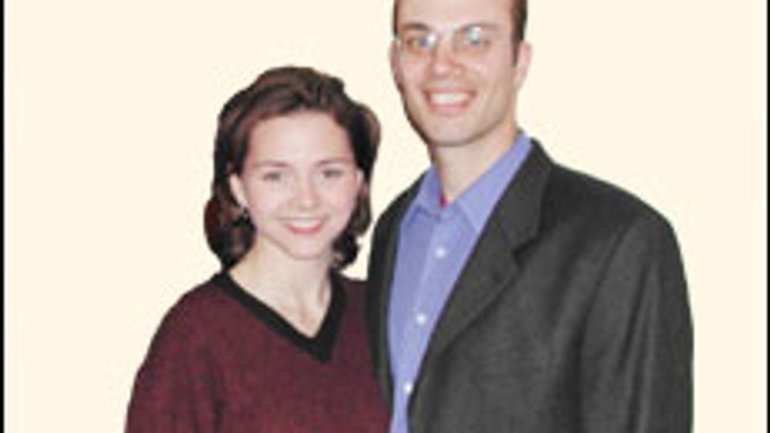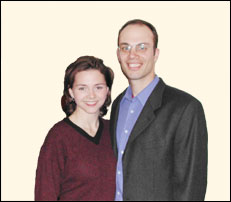Interview with Fred Van der Werf

Methodist Missionaries in Ukraine
 Fred Van der Werf, a missionary from the United Methodist Church, has been in Lviv, Ukraine for a year and a half. Born in 1970, Fred and his wife, Stacy, are from the United States, he from Minnesota, she from Texas.
Fred Van der Werf, a missionary from the United Methodist Church, has been in Lviv, Ukraine for a year and a half. Born in 1970, Fred and his wife, Stacy, are from the United States, he from Minnesota, she from Texas.
– Could you briefly explain to a Ukrainian audience the history of Methodism and how it is different than other denominations?
– Usually Ukrainians want something to compare Methodism with. However, there is little here to compare it with, since it is tough to directly compare it to any of the traditions present here, which are either Orthodox, Catholic or Baptist. We are a Protestant faith that has come out of the Church of England. We are a church that values traditions, yet also values experience, sacred Scripture and reason. Whereas the Catholic might place more emphasis on tradition, and a Baptist on sacred Scripture, we say that both of these are important. One more thing: We are a singing Church!
– If you could summarize Methodism how would you do so?
– 'All need to be saved,
All may be saved,
All may know that they are saved,
All may be saved to the utmost.'
Methodism emphasizes both personal piety as well as social holiness. We hope that each person experiences a personal conversion. One should not fall into an individualistic faith, but their faith should go out into the world and transform the world around them.
– As a missionary, what are your short and long-term goals?
– To establish a ministry with students and young people. This can be a ministry to young people of different faiths. We hope that this will lead them closer in their walk with Jesus and that they'll be able to bring that back to people in their own churches. Long term, if some of those people in our group don't have a denomination of their own we hope that with them we can organize our own Methodist church.
– How long will this take? Five, Ten, Fifteen years…
– It may take two more years for a small home church to develop.
– What is the situation regarding Ukrainian membership?
– There are about ten or twelve [communities] in Ukraine. Three or four are in Crimea. There are two in Kyiv. One in Luhansk, one in Chernivtsi, one in Uzhhorod and a few in Uzhhorod region. However, the Methodist churches in Uzhhorod belong to the Hungarian conference. [Editor's note: before the interview Mr. Van der Werf also was telling our correspondent about the Methodist community in Odessa, about which RISU had a story on 7 December 2001.]
Methodism was in Ukraine earlier. The community in Uzhhorod was present around the time of World War I. There was a Methodist community in Ternopil prior to Stalin's era. Additionally, some of our churches have come from missionary planting while others have developed out of already existing churches which discovered the Methodist faith and decided to join us.
– Are people receptive to Methodism or are they more cautious?
From my experience in Lviv, which has a vital religious community, people proceed with caution, and rightly so. Because of all the sects and cults moving into Ukraine, people want to know who we are and what we believe before they accept us. It is worth noting that people haven't been rude at all. However, they want to know more about us, in a cautious way. If I were them I would react the same way since we Methodists are not very big and well known here. Often people ask us what are practices and doctrines are. I like to emphasize that we have Communion and that we baptize children.
– What were your expectations as a missionary; have things developed as you imagined?
– I've found that almost anyone here will talk about God with you. People are not afraid to talk about God with you. In that sense, people here are a little more open about that than people are back in the USA. Prior to coming here, some said that 70 years of communism had wiped out any sign of religion and God; but I knew that wasn't true. Materialist and Communist white washing has gone on, but God is here and will be here.
Interview conducted in Lviv, 23 December 2001
by Matthew MATUSZAK









